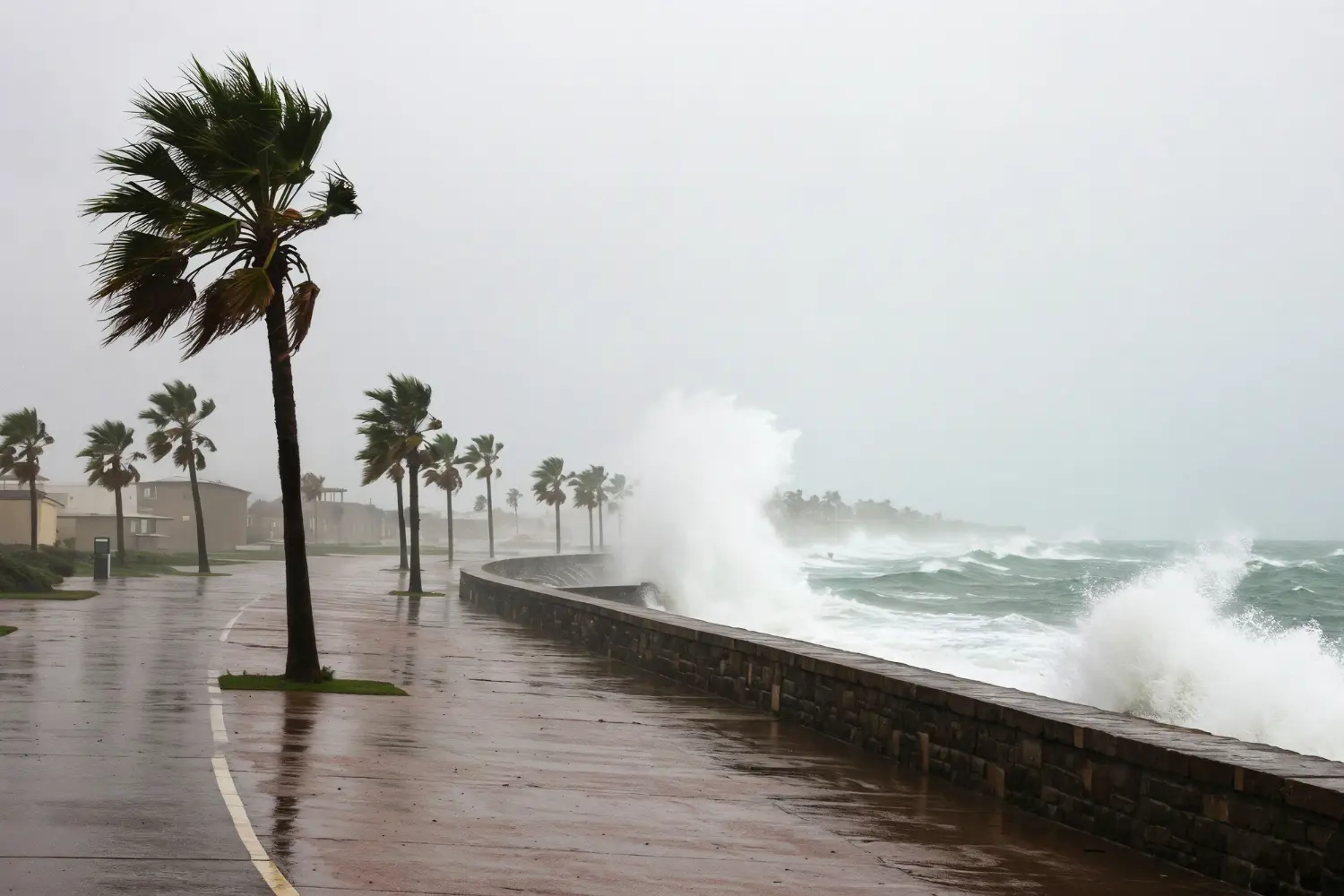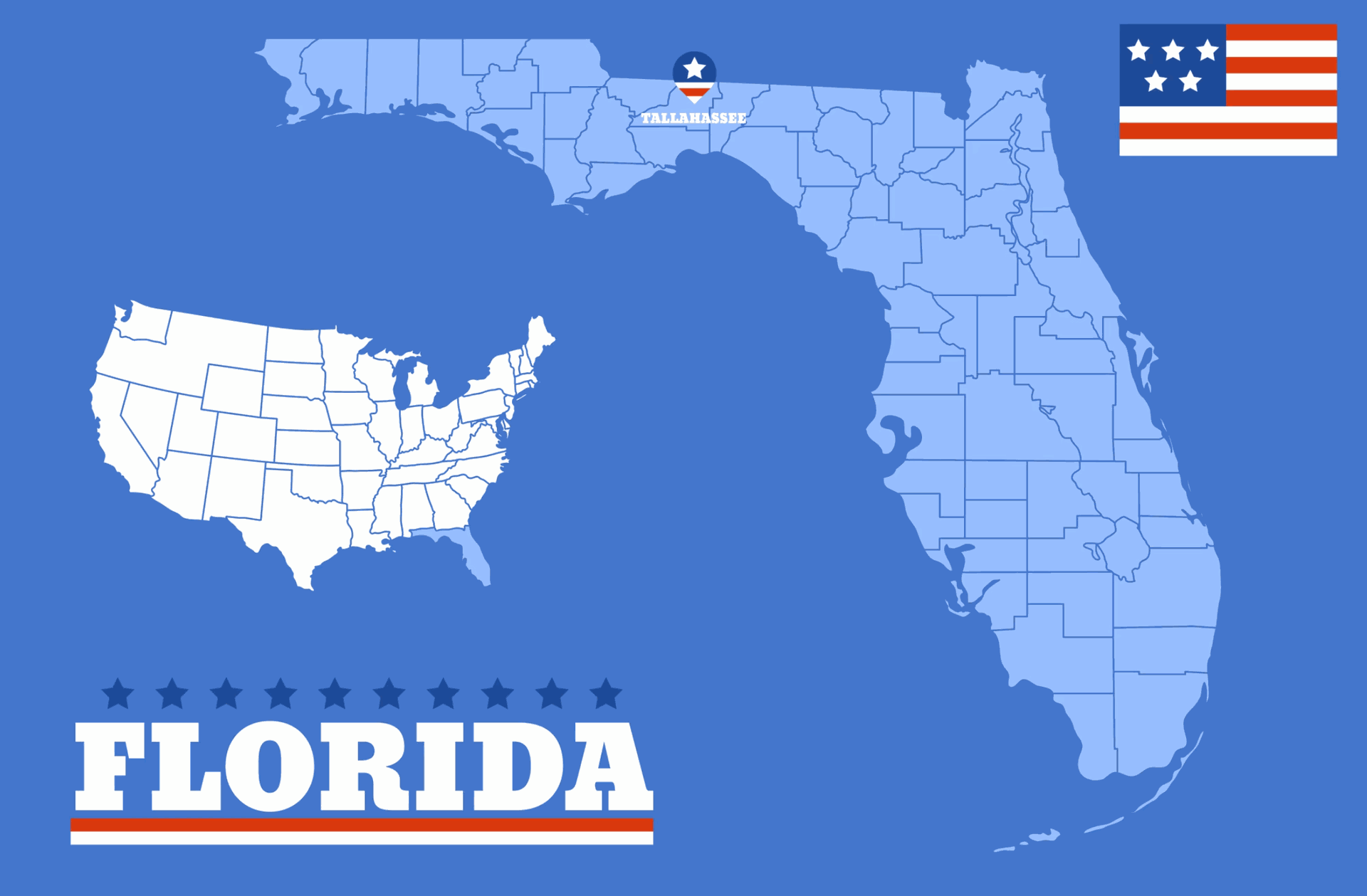Titans of Nature

A hurricane is a powerful tropical storm that forms over warm ocean waters and can bring destructive winds, heavy rainfall, storm surges, and flooding. Florida, with its long coastline and location in subtropical regions, is one of the states most prone to hurricanes in the United States.
The hurricane season officially begins on June 1 and ends on November 30, with the highest activity occurring between mid-August and late October.
Why is Florida so vulnerable?

The geography of Florida makes it a frequent target:
- More than 2,100 kilometers of coastline exposed to the Atlantic Ocean and the Gulf of Mexico.
- Many areas with low elevation, which increases the risk of flooding.
- Warm ocean waters that fuel the development of storms.
- Its location as a "crossroads" for storms coming from the Caribbean, the Gulf, or the East Coast.
Some of the most devastating hurricanes in U.S. history have impacted Florida, including:
- Hurricane Andrew (1992) – Category 5, caused $27 billion in damages.
- Hurricane Irma (2017) – Affected more than 6.5 million people.
- Hurricane Ian (2022) – One of the most expensive hurricanes in history, with damages exceeding $112 billion.
Common dangers during a hurricane
- Storm surge: Rise in sea level that can flood coastal areas (the deadliest threat).
- Strong winds: They can destroy houses, knock down power lines, and turn debris into projectiles.
- Heavy rains and flooding: Even inland areas can experience sudden flooding.
- Tornadoes: Hurricanes often generate tornadoes when they make landfall.
How to prepare for a hurricane
Being prepared can save lives. Here’s what you need to do:
✅ Create an emergency kit:
- Water (1 gallon per person per day, for at least 3 days)
- Non-perishable foods
- Flashlights, batteries, and a hand-crank radio
- First aid kit
- Medications
- Important documents (in waterproof containers)
✅ Make a family plan:
- Know your evacuation zone.
- Identify shelters or safe places.
- Establish a communication plan with your family.
✅ Protect your home:
- Install storm shutters or cover the windows with boards.
- Trim trees and secure loose objects outside.
- Check your insurance (home, flood, wind).
- During the storm, stay indoors and away from the windows.
- Do not walk or drive through floodwaters — just 6 inches of moving water can knock you down; 12 inches can sweep away a car.
- Follow updates through local news or the NOAA Weather Radio.
After the hurricane
- Wait for official confirmation that it is safe to go out.
- Avoid fallen cables and report them immediately.
- Document the damages for your insurance.
- Be careful with contaminated water and spoiled food.
Hurricanes are a part of life in Florida. While we cannot stop them, preparation, awareness, and quick action can drastically reduce risks and save lives. Stay informed, prepare, and take care of yourself.
🔔 Regístrate para recibir alertas de emergencia en FloridaDisaster.org
If you don't have an insurance policy yet, contact us and we will gladly help you make the best decision for you, your family, and your Budget.